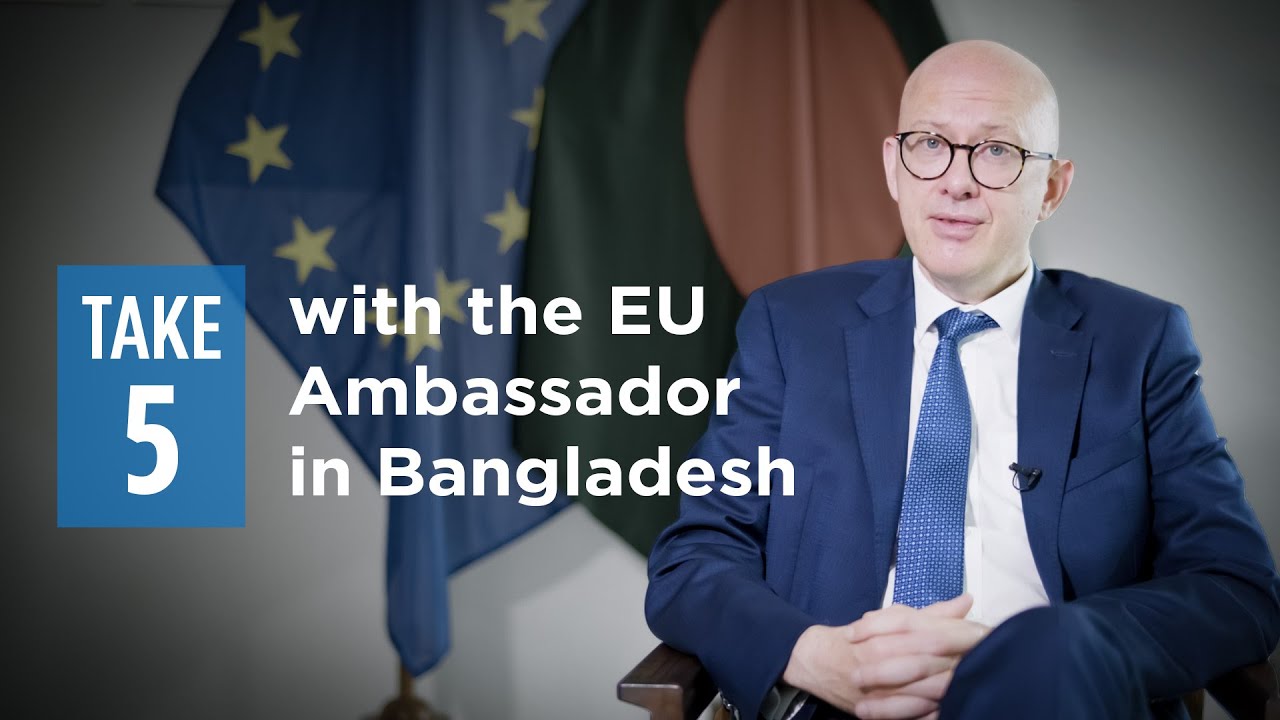Also available on https://youtube.com/@unwomenasiapacific, click [here] to view.
Why is gender equality important to the European Union?
Gender equality has been at the heart of European Union's policies for many decades. … Over the years, the European Court of Justice has developed extensive case law to ensure that across the European Union, the rights of women are enforced and recognized. We strive to prioritize gender equality not only in specific domains but also in our foreign policy, external relations, political dialogues, development cooperation, and trade policy.
How do you plan to advance gender equality in Bangladesh as part of the European Union Gender Action Plan III?
We are keen to support the Government of Bangladesh in implementing the 8th Five Year Plan that includes women's economic empowerment. While UN women and other UN agencies are doing important work in this field, there are issues that need significant attention. Gender-based violence, including domestic violence and public harassment, remains a critical concern in Bangladesh.
What approaches might be needed to address harmful social norms and discriminatory practices against women, girls and gender-diverse people?
Public awareness and education are vital for safeguarding and acknowledging everyone's rights in society. Prioritizing human rights education from primary schools and beyond is imperative. Adequate funding for targeted programmes is also essential. EU has a 10-million-euro programme in the pipeline to address gender-based violence. In Europe, a new law has been introduced that aims to address the glass ceiling in business by requiring a minimum representation of 33 per cent women on major company boards by 2026. … Every country in every region and certainly the European Union still has its challenges. So sharing our experience with Bangladesh and other partners and learning from each other is extremely important.
In light of the increasing pushback on gender equality globally, what might be needed to further strengthen the women’s movement in Bangladesh?
Men need to learn as well that they are not in charge of everything and women have an equal say in everything. So it is important to involve men and boys in this dialogue.
However, women in Bangladesh are claiming their space in the fields of culture, business, politics and civil society. And it is important to make sure that any pushback against that is not given oxygen. So the European Union, as a friend and partner of Bangladesh, is happy to support programmes that create space for women but also supports making sure that the forces against this do not constrict the world for women here.
How does the European Union plan to support the prevention of violence against women and girls in Bangladesh?
Preventing gender-based violence, needs a holistic approach that includes addressing harmful social norms, patriarchal issues and trans-patriarchy … . But it also means awareness-raising and education, teaching men and boys to respect the human rights of women and that violence in any incarnation is unacceptable. And also it means strict enforcement of laws … . So it can have a preventative effect. That is why we would support further development of laws in Bangladesh, including the laws relating to sexual harassment and GBV [gender-based violence]. But we also need to make sure that there are facilities for women who have endured violence, have the right solutions available, and that they can find help as per need.”
